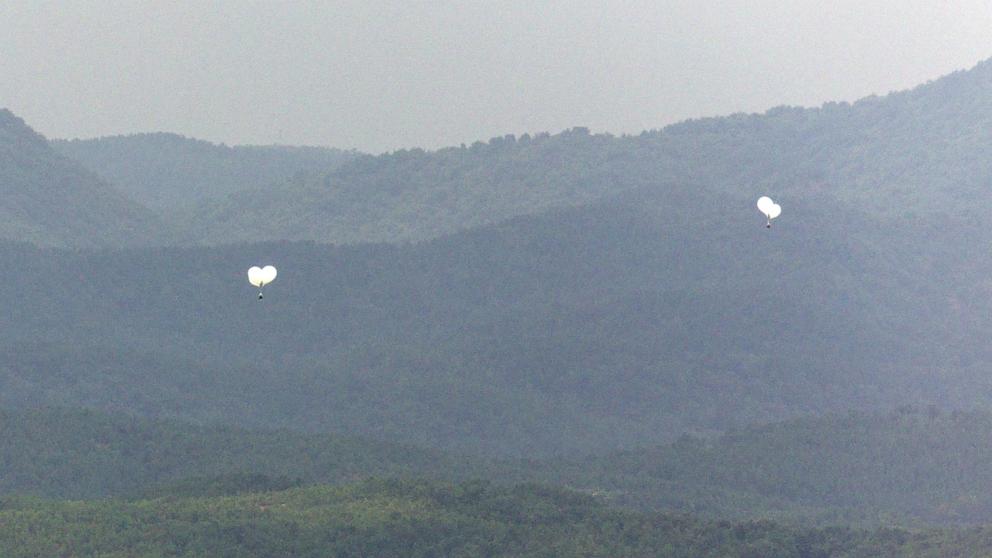


South Korea's Joint Chiefs of Staff said Monday that Seoul may respond militarily to any casualties caused by North Korea's launching of so-called "trash balloons" across the shared border, the state media Yonhap News Agency reported.
"North Korea's gray zone provocations are continuing and are causing inconvenience and anxiety to the public, so we have summarized the military's position to date and delivered a message," Lee Sung-joon, a spokesperson for South Korea's Joint Chiefs of Staff, said, as quoted by Yonhap.
"This is an internationally shameful and petty act that creates discomfort and anxiety among our people and is a low-level act intended to incite conflict."
Though there were "no issues" so far that warranted a military response, Seoul would consider a military response if there were direct casualties caused by the North Korean balloons, Lee added.
"If North Korea's continued trash balloons are judged to pose a serious threat to the safety of our citizens or to have crossed the line, the military will take stern military action," he continued.
MORE: North Korea sends balloons full of manure and trash over the border to South KoreaNorth Korea launched a total of 5,500 trash balloons at South Korea on 22 occasions from May 28 to Sept. 23, Lee said.
Approximately 120 of these were launched on Sunday and Monday, the Joint Chiefs of Staff said.
"Some are demanding physical responses from the military, such as shooting them down in the air," the Joint Chiefs of Staff continued, according to Yonhap. "However, if unexpected hazardous materials are dispersed due to shooting them down in the air, it could pose a bigger problem to the safety of our citizens."
Takeoffs and landings at Incheon International Airport -- the main airport in the capital Seoul -- were suspended twice during the early morning hours of Monday due to North Korean balloons, Yonhap reported.
Several fires have also been reported in metropolitan areas believed caused by "heat timers" attached to the balloons.
Household waste items like paper, vinyl and plastic bottles are among the confirmed contents, the South Korean military said. So far, no hazardous materials were identified. Some trash balloons carried manure.
Seoul estimated that North Korea spent 550 million won -- around $411,600 -- to produce the balloons to date, Yonhap reported.
South Korean civic groups also send balloons into North Korean territory, often carrying rice, essential medicine and leaflets critical of the regime in Pyongyang. North Korea has repeatedly protested such action and threatened a response.